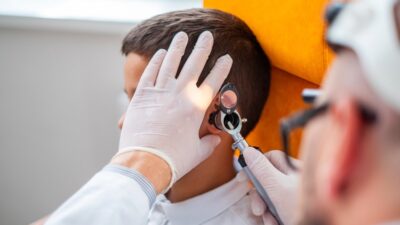Dry eye disease is a common ailment in which your tears do not adequately lubricate your eyes, causing pain. Causes include inadequate tear production or tears of low quality. Inflammation and ocular injury are caused by this instability. In certain cases, symptoms include stinging, burning, and dryness. Long-term symptom management is achieved with lifestyle adjustments and eye drops. Visit this website for dry eyes edgewater services.
Table of Contents
What are the symptoms of dry eyes?
Dry eye disease symptoms include stinging, burning, or scratchy sensations in the eyes, stringy mucus, light sensitivity, redness, a sense of foreign objects, trouble wearing contact lenses or driving at night, wet eyes, and impaired vision or eye tiredness.
What are the causes?
Dry eyes arise when the tear film’s three layers (fatty oils, aqueous fluid, and mucus) are disturbed, resulting in inadequate lubrication. Hormonal changes, autoimmune illness, inflamed eyelid glands, allergic eye disease, reduced tear production, or increased tear evaporation are all possible causes.
Tear glands produce fluid to lubricate the eyes, with excess fluid emptying into the nose via tear ducts. Dry eyes can be caused by aging, medical conditions, medications, corneal nerve de-sensitivity, or increased tear evaporation caused by blocked meibomian glands, blinking less frequently, eyelid problems, eye allergies, preservatives in eye drops, wind, smoke, or dry air. A lack of vitamin A can also lead to dry eyes.
Are there any risks associated?
Being over 50, being a woman (particularly during hormonal changes like pregnancy, birth control pill usage, or menopause), eating a diet low in vitamin A or omega-3 fatty acids, and using contact lenses or having a history of refractive surgery are all risk factors for dry eyes.
Dry eye complications include an increased risk of eye infections, possible damage to the surface of the eyes leading to inflammation, corneal abrasion, ulcers, and vision loss, as well as a lower quality of life affecting daily activities such as reading.
Final thoughts
To avoid dry eyes, avoid conditions that cause them, such as blowing air or being in a dry area. In dry interior environments, use a humidifier and wear protective eyewear. Take pauses during visually intensive jobs and keep your computer screen posture in mind. Smoking and secondhand smoke should be avoided. Even if your eyes feel OK, use artificial tears on a regular basis to keep them lubricated. On top of that, make sure to schedule regular doctor appointments.










Comments